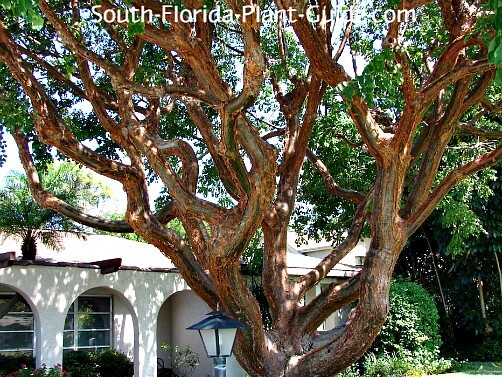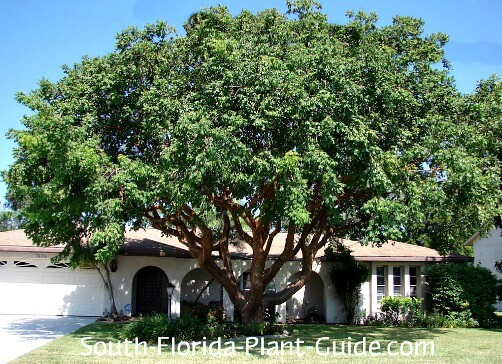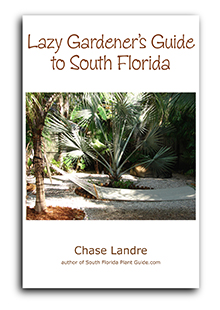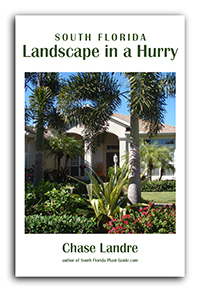Gumbo Limbo Tree
Bursera simaruba
A native of South Florida, the gumbo limbo tree is big and beautiful, with showy red bark and interesting branches low to the ground.

It develops unusual red bark that peels back - reminiscent of sunburned skin - which gives gumbo limbo the nickname of "Tourist Tree."
These trees take up a lot of space with thick, low branches that stay near to the ground, so the tree fits best in a large yard.
The wood is lightweight, soft and easily-carved - it used to be used to make carousel horses.
But in spite of these characteristics of the wood, a gumbo limbo is considered one of the most wind-tolerant trees and can withstand hurricane winds...though branches may be broken and tossed by hurricane-force winds, since no tree is immune.
But the soft wood allows more bending with the wind rather than breaking.
The "Tourist Tree" is one of the prettiest salt tolerant trees, making it a welcome shade tree for a coastal property.
It's also popular with wildlife...the berries it produces in summer are a favorite with birds.

Plant specs
Best in Zone 10, gumbo limbo is a fast grower you can plant in full sun to partial shade.
Most seen in home landscapes are around 25 or 30 feet tall, though the tree can reach 40 feet.
Generally expect this tree to lose its leaves in winter, though during warmer winters or in the warmest regions of South Florida it may retain some foliage.
It's drought tolerant (once established) and salt tolerant.
Plant care
No soil amendments are needed, though adding top soil or organic peat moss to the hole when you plant certainly won't hurt.
Trimming a gumbo limbo tree is only necessary to remove too-low branches to allow for foot traffic or where the branches extend over a driveway.
These trees are drought tolerant once established. They'll do best with regular irrigation and time to dry out between waterings. At the very least, water during dry spells.
Fertilize 3 times a year - in spring, summer and autumn - with a good quality granular fertilizer.
Plant spacing
Plant 15 to 20 feet from the house if you can. Any closer and you will be calling in a tree trimming company in the future.
Avoid placing near a drive or walk so roots and lower branches don't become a problem as the tree matures.
Landscape uses for gumbo limbo tree
- single specimen tree
- along the edge of a large property
A.K.A. (also known as): Tourist Tree
GOOD SNOWBIRD PLANT? NO
COMPANION PLANT SUGGESTIONS: Since this tree's lower branches grow out wide - and the tree can develop large surface roots, as well - you may want to leave the area underneath unplanted. Or use a low-growing groundcover such as Asiatic jasmine (jasmine minima). Nearby plants might include Panama rose, dwarf oleander, variegated pittisporum, white fountain grass, buddleia, and society garlic.
Other trees you might like: Sycamore, Mahogany
Take a break!
The ultimate guide to low-maintenance plants
and landscaping!
An ebook by
Chase Landre
author of
South-Florida-Plant-Guide.com
Learn more!
Get a greener thumb!
Want to learn more about South Florida planting, watering, fertilizing and dealing with weeds and pests?
See our Gardening How-To section for answers!
Get instant curb appeal!
An ebook by
Chase Landre
author of
South-Florida-Plant-Guide.com
Learn how to get instant curb appeal with fast growing plants and landscaping techniques!

